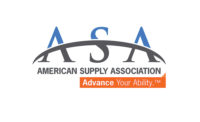Currently, at least 12 states have issued stay-at-home orders thus far. All shut downs include exemptions for “essential” operations. There is no consistency around the scope of what constitutes an essential business or service, forcing these decisions to be made locally.
The Department of Homeland security (DHS) is encouraging work truck industry companies to conduct thorough analysis of their business operations in the context of their local authority decisions using the guidance from DHS outlined below:
Critical Manufacturing
- Workers necessary for the manufacturing of materials and products needed for medical supply chains, transportation, energy, communications, food and agriculture, chemical manufacturing, nuclear facilities, the operation of dams, water and wastewater treatment, emergency services, and the defense industrial base. This specifically includes transportation equipment manufacturing.
Transportation and Logistics
- Employees supporting or enabling transportation functions, including dispatchers, maintenance and repair technicians, warehouse workers, truck stop and rest area workers, and workers that maintain and inspect infrastructure (including those that require cross-border travel).
- Automotive repair and maintenance facilities — noted in the DHS memo — include employees who repair and maintain vehicles, aircraft, rail equipment, marine vessels, and the equipment and infrastructure that enables operations that encompass movement of cargo and passengers. The DHS memo provides guidance to what businesses could be considered “essential” but still gives discretion to state and local officials to issue their own directives.





